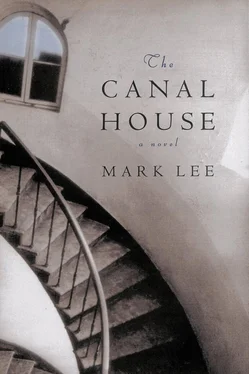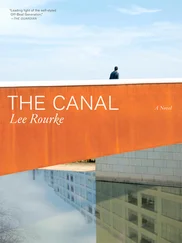The Reuters East Africa Bureau was on the fourth floor and a young Indian woman wearing a blue sari sat at the desk in the reception area. The glass door on the right led to an equipment room filled with printers, radios, and sat phones. I could see two African journalists working in a small office on the left.
“Good afternoon. We’re here to see Mr. Vickery.”
The young woman turned and spoke to us with a precise British accent. “Mr. Vickery is not seeing anyone.”
“I’m Daniel McFarland. I talked to him on the phone this morning.”
“And he agreed to meet with you?”
“Of course. That’s why we’re here.”
“I’m Miss Patel, Mr. Vickery’s assistant. He did not inform me of this appointment.” She looked carefully at Daniel as if he was trying to trick her, but then she got up and slipped through a third door.
We waited a few minutes until Miss Patel returned. “You are Mr. Vickery’s friend?”
“We worked together in Bosnia.”
“But you have not seen him since his accident?”
“No. I haven’t.”
“You are quite fortunate. Mr. Vickery is having a good day.”
She opened the door and I followed Daniel into a shadowy office. All the lamps had been switched off and the only illumination came from the thin strips of afternoon sunlight that glowed through the Venetian blinds. A rolltop desk was shoved against the wall in one corner of the room and a dark shape sat in a high-back leather chair. I couldn’t see Matthew Vickery’s face, but I heard his voice, thin and raspy, like a man who had walked all day without water.
“You have to count the bodies. That’s part of the job. You drive out there and count the bodies before they swell up and villagers bury them.”
I closed the door behind me and the room got a little darker until my eyes adjusted. Lights glowed on the buttons of Vickery’s telephone. A black cord led up to a headset.
“I don’t care how you get there. Walk if you have to. Pay someone to carry you all the way from Kinshasa. And don’t try to fake the story because I’ve got an instinctive sense for fiction. The AP will go to that village. Agence France-Presse will count the bodies. And if what they file is substantially different from your article, then I’m going to hire another stringer.”
The doctors in London had transplanted skin from Vickery’s back to his burned face, and the surface was uneven and scarred. A baseball cap covered his bald head. Black pants and a white cotton shirt hung loosely on his body like a skeleton wearing clothes.
“Do you like your job, François? Or let me rephrase that: do you like my checks? Of course you do. I’m not paying you for rumors from the matutu drivers or the official twaddle from some government minister. I’m paying you to count the bodies and decide who won the battle. Comprendez-vous? ”
Vickery hung up on his caller and swiveled his chair toward us. “Hello, Daniel. Who’s your friend?”
“Nicky Bettencourt. I’m a photographer for Newsweek .”
“I know who you are. When you worked for Reuters, you took a good shot in Rwanda. A severed arm lying in the middle of the road.”
“That was a long time ago.” I stepped forward, then realized that Vickery’s right hand had been transformed into a bird’s claw—the thumb lost, the other fingers bent slightly and fused together. Embarrassed, I lowered my own hand while he watched me.
“As you can see, I’ve been dipped in fire. All the base metal has been burned away.” Vickery hit another phone button. “Miss Patel, could we have a pot of tea and some digestive biscuits? The chocolate-dipped ones, if they’re still available.”
Vickery pointed out some folding chairs and we set them up near his desk. I glanced at Daniel. His face showed neither disgust nor sympathy. He stared at Vickery as if the bureau chief was going to perform a magic trick.
“What do they say about me in London?”
“That you’re working here.”
“Do they think I’m doing a good job? That’s why I wanted to see you, Daniel. To get the gossip, find out how I’m perceived.”
“No one said anything negative.”
“Nor should they. I’m still sending out an enormous amount of copy.” Vickery gestured with his injured hand. “I’ve got two or three stringers in every country and I can talk to them by phone twenty-four hours a day. I send them into battle, cheer them on, listen to the guns firing. It’s like moving pieces around a chessboard.”
Someone opened the door. A patch of light appeared on Vickery’s cheek. With a clatter of dishes Miss Patel walked in carrying a wooden tray with a teapot, cups and saucers, and a dish of little round cookies. She placed the tray near the edge of the desk and poured some tea for her boss.
“Do you find Miss Patel attractive, Daniel?”
“Yes.”
“Would you like to sleep with her? I’m quite desperate to, but I have a few physical deficiencies. My dream is for Miss Patel to take a lover and then allow me to watch her perform certain acts.”
Miss Patel’s lips tightened slightly, but she mixed in the cream and sugar. “That will never happen, Mr. Vickery.”
“Never say never, Miss Patel. Look at my own life. An infinite variety of joys and humiliations are possible in this world.”
Miss Patel retreated out the doorway with a swish of her sari. Vickery made a harsh sort of gasp that resembled laughter. Daniel poured two more cups of tea.
“Don’t worry. I can say anything to her. You can, too. She’s a college graduate and there are no jobs for college graduates in this town. She’s lucky I hired her.”
“Tell me about the kidnapped tourists.”
“I see you haven’t changed, Daniel. Fun and games in Rome, but hard work in the field. Do you even like being a journalist? I wonder.”
“What are the chances of finding the Lord’s Righteous Army?”
“Virtually nonexistent. And if you do find them, they’ll kill you.”
“Sounds like a promising story.”
Vickery raised the cup to his lips and slurped some tea. “The kidnapped tourists were bird-watchers. Can you believe it? Apparently Kidepo Valley National Park is a prime spot to view large raptors so they flew up there on a chartered plane from Entebbe. Bird-watchers are bloody insane. They all have lifetime lists of the species they’ve seen. The more birds on your list, the more sex you get at bird-watcher conventions.”
“How did they get captured?”
“The group spent a night at Apoka Lodge, then two armed park rangers and two drivers took them out in Land Rovers. About ten kilometers from the camp, the Lord’s Righteous Army ambushed them. The guerrillas killed both rangers and one of the drivers, then chopped off the right hand of the surviving driver and sent him back to tell the world.”
“Was that unusual?”
“You mean chopping off the hand? Not really. It’s Samuel Okello’s trademark, like Mickey Mouse or the Coke bottle. I think he bases it on biblical law. The Book of Leviticus.”
“Is that all you know about him?”
“He was the top student at his Christian school, formed a religious youth organization, then got a two-year scholarship to attend Southern Methodist University in Texas. When he came home to preach in Kitgum there was friction between the members of his Acholi tribe and the southern tribesmen running the government. Okello got whipped by the district police for leading a protest so he took his parishioners and fled into the bush. He wants to take over the country and set up a government, with him as the supreme leader. In the last few years he’s moved north to the Sudanese border.”
“Are the hostages still alive?”
“A few herdsmen have seen them. They all look the worse for wear, but Okello hasn’t killed them—yet. He’s been getting weapons from the Sudanese army because the army hates the Ugandan government. Sudan is the obvious channel for a deal, but no one has attempted it. I guess Reverend Okello makes his own rules.”
Читать дальше












